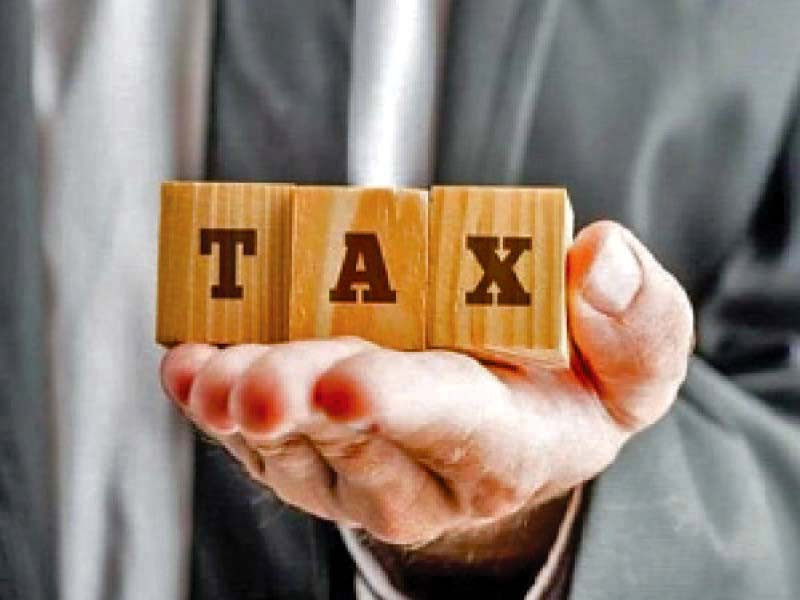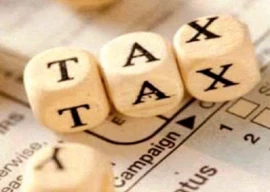
Finance Minister Miftah Ismail has rejected the largest tax proposal to slap 1% capital value tax on the total value of stock market that the Federal Board of Revenue (FBR) wants to introduce to collect an additional Rs76 billion in the next fiscal year.
The minister also turned down another proposal of the International Monetary Fund (IMF) to increase the tax burden on the salaried class, reopening the issue of personal income tax reforms.
But Ismail’s decision to turn down the two biggest revenue measures will make it difficult for the FBR to convince the IMF that it has the ability and the required revenue measures in place to achieve the Rs7.2 trillion tax collection target for fiscal year 2022-23.
“I have firmly rejected the proposal to introduce 1% capital value tax on the market capitalisation,” Ismail told The Express Tribune. The minister said that he also conveyed the same position to the IMF.
According to the Ministry of Finance’s monthly report, the market capitalisation settled at Rs7.583 trillion at the end of March. The 1% tax could have given revenue of nearly Rs76 billion to the government.
Taxing the stock market in the middle of a political crisis will not be an easy task for any government.
The FBR wanted to introduce the 1% CVT as a one-time measure to achieve the goal of imposing an additional Rs300 billion in taxes in the new fiscal year.
Sources said that the IMF did not agree to the FBR’s recommendation to set the next fiscal year’s tax target at Rs6.8 trillion and instead remained glued to its proposal to fix the target at Rs7.2 trillion.
The projected revenue collection for the current fiscal year is around Rs5.9 trillion and the FBR needs to collect an additional Rs1.2 trillion at a growth rate of over 20%.
The IMF is of the view that the average inflation rate in the next fiscal year may remain around 11% while the economic growth is projected at 5%. This nominal GDP growth of 16% should push up the FBR’s collection by over Rs900 billion, leaving it with the task to collect the remaining around Rs300 billion through the additional revenue measures.
The IMF has again asked Pakistan to rationalise the salaried individuals’ tax rates by adjusting their slabs.
But Ismail told The Express Tribune that he has rejected the increase in tax burden of the salaried individuals.
The IMF had earlier proposed to tax the upper-middle and rich income groups, who earn in the range of Rs104,000 to Rs1 million a month, at a single rate of 30%. The new rate proposed by the IMF will result in an additional revenue of Rs96 billion, bringing total taxes from the individuals to around Rs250 billion.
Read IMF asks for Rs7.25tr tax collection target
About 1.24 million salaried people have filed income tax returns for the tax year 2021 and out of these 333,000 fall in the income tax exemption slab of Rs50,000 per month.
In response to the IMF’s proposal, the FBR rehashed its numbers and claimed that the salaried people paying their due taxes were in fact over 1.8 million instead of the earlier reported figure of 1.2 million.
Sources said that the FBR took the stance that there were another over 600,000 people who were paying taxes on their salaries but were not filing returns. This included the military personnel whose income tax contributions are manually adjusted by the FBR.
However, the increase of 600,000 in the salaried class did not change anything on the ground, as their taxes were already part of the total tax base.
The government painted a scenario where it claimed that the additional 600,000 salaried people can cough up around Rs70 billion but this money was already part of the tax collection.
During the Doha talks, the government also shared its revised tax slabs for the individuals – both salaried and business income – with the IMF, which are higher than the existing rates but do not put a major burden on the middle and upper-middle income groups.
The net additional impact of the government’s proposed rate was about Rs35 billion, nearly one-third of what the IMF wanted.
There is a possibility that the government may withdraw the tax credit for contribution to the approved pension fund but its annual revenue impact is hardly Rs1 billion.
Another proposal is to cap the gratuity expenses that a company claims every year to increase collection.
Sources said that the FBR would now share new proposals with the IMF, as like all other areas the FBR has not yet convinced the IMF how it will collect Rs7.2 trillion in the next fiscal year.
Commenting on the dismal outcome of IMF talks, the finance ministry said on Thursday that the government was committed to reviving the IMF programme and putting the economy back on a sustainable growth path.
It admitted that the IMF expressed concern about the fiscal and current account situation arising from the government’s actions, especially electricity and fuel subsidies and other slippages.
The meetings identified the areas of divergence and corrections required in the current account and fiscal deficit, it added.
Published in The Express Tribune, May 27th, 2022.
Like Business on Facebook, follow @TribuneBiz on Twitter to stay informed and join in the conversation.




1732184775-0/BeFunky-collage-(80)1732184775-0-165x106.webp)

















COMMENTS
Comments are moderated and generally will be posted if they are on-topic and not abusive.
For more information, please see our Comments FAQ